What is Post-Quantum Cryptography: The Next Frontier in Cybersecurity
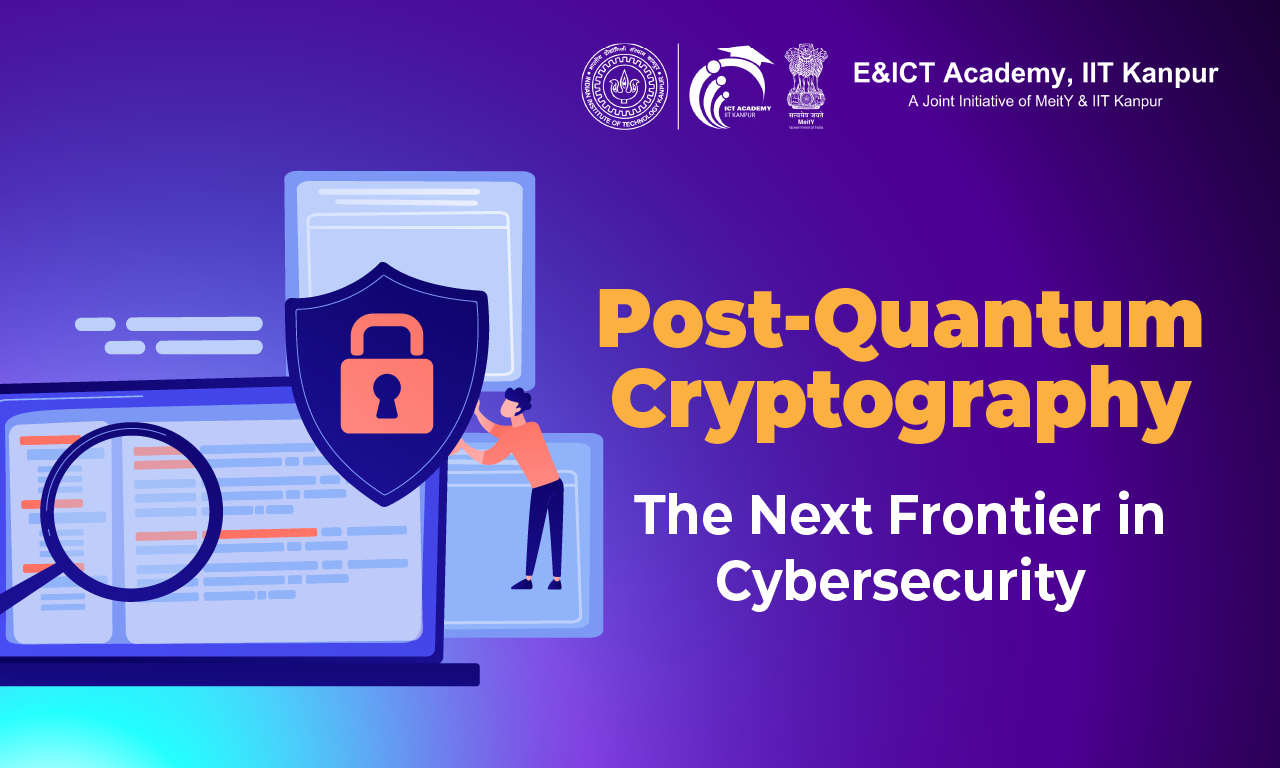
What is Post Quantum Cryptography: Quantum computing is set to revolutionize technology but threatens current cryptographic systems. Traditional encryption methods like RSA and ECC rely on mathematical problems that quantum computers, using algorithms like Shor’s, could solve rapidly.
Data security is in danger because of this, which is why post-quantum cryptography (PQC) is crucial. To provide long-term security for people, companies, and governments, PQC works on creating encryption techniques that are immune to quantum assaults.
In the digital age, switching to PQC is becoming increasingly important for preserving cybersecurity as quantum developments pick up speed.
The Quantum Threat to Current Cryptography
Modern cybersecurity may be disrupted by quantum computing, which is quickly becoming a reality rather than only a theoretical idea. Modern methods of encryption that include elliptic curve cryptography (ECC) and Rivest-Shamir-Adleman (RSA), which work based on some very hard mathematical problems that will take thousands of years to be solved by the normal computer, could be decoded within a matter of hours or minutes using Shor’s method by a quantum computer.
This leads us to believe that sensitive government information, medical records, and encrypted money transactions can all be readily decrypted. This is the danger that comes with “Q-Day,” the speculative time when quantum computers are strong enough to crack existing cryptography. Businesses that store sensitive data today need to take immediate action since, even in the absence of quantum assaults, material that has been encrypted today may one day be decoded.
Cybersecurity experts are working feverishly to create post-quantum cryptography to reduce this danger and guarantee that data is safe in the quantum era.
Emergence of Post-Quantum Cryptography
Post-quantum cryptography (PQC) has become much more relevant than it ever was due to the increasingly menacing nature of quantum computing and standard encryption techniques. PQC is the process of creating cryptographic algorithms that are immune to quantum-based assaults in the aftermath of quantum computers.
Researchers and businesses are already investigating alternate encryption methods since well-known systems like RSA and ECC are vulnerable to exploitation by quantum computers.
PQC algorithm evaluation and standardization have been spearheaded by the National Institute of Standards and Technology (NIST). NIST has begun choosing the algorithms that will serve as the foundation for upcoming cybersecurity measures following years of extensive testing. Lattice-based and code-based encryption are two examples of these novel algorithms that are meant to survive the enormous processing capacity of quantum computers.
As quantum technologies develop, PQC will be essential in protecting the digital world by providing resistance to new dangers.
Key Approaches in Post-Quantum Cryptography
Post-quantum cryptography (PQC) aims to provide encryption methods that can withstand attacks by quantum computers. Several key approaches are being researched to provide secure data storage and transmission in a quantum future. Here are a few of the most promising approaches:
Lattice-Based Cryptography
Learning With Errors (LWE) and other lattice-based techniques are thought to be very resilient against quantum assaults. The intricacy of lattice issues, which are thought to be challenging even for quantum computers, is the foundation of these systems.
Code-Based Cryptography
Error-correcting codes are used in code-based cryptography, like the McEliece encryption scheme, to generate safe encryption techniques. It is believed to be resistant to quantum attacks and has been studied for decades.
Multivariate Polynomial Cryptography
This approach involves systems based on the difficulty of solving multivariate polynomial equations, providing strong resistance to quantum threats.
Multisignature Schemes
Multisignature systems increase security by requiring many signatures from various parties to approve an operation or transaction. This strengthens its defences against quantum assaults by adding another layer of security.
Obstacles in the Post-Quantum Cryptography Transition
Several obstacles must be overcome for the post-quantum cryptography (PQC) transition to be implemented successfully. Some of the major obstacles are:
- Delays in Standardization: Creating widely recognized PQC standards is a difficult and drawn-out process. The process of reviewing algorithms is still in progress and is being carried out by several agencies, including NIST.
- Complexity of Implementation: PQC algorithm integration into current systems necessitates major hardware and software modifications, which may be expensive and technically difficult.
- Problems with Performance: Performance trade-offs may result from the computationally demanding nature of many PQC algorithms, particularly in settings with limited resources.
- Issues with Compatibility: To prevent disruption, it is essential to provide backward compatibility with existing systems throughout the PQC transition.
- Absence of Skilled Personnel: One major issue is the lack of specialists with knowledge of both encryption and quantum computing. To effectively create, deploy, and manage post-quantum solutions, organizations require trained staff.
Overcoming these obstacles will guarantee the safety of digital systems in the quantum age, even though the switch to post-quantum encryption is essential for protecting communications in the future.
Adoption and Industry Readiness
As quantum computing advances, businesses need to be prepared for the eventual shift from current cryptography to post-quantum cryptography (PQC).
While the adoption is still in its infancy, front-running governments and corporations are already implementing quantum-resistant algorithms. Important industries, including government, healthcare, and finance, have started assessing the effects of quantum risks and switching to PQC. There are differences in industry preparation; some businesses prioritize security enhancements, while others struggle with resources and knowledge.
In order to ensure strong cybersecurity in the quantum age, widespread PQC use requires constant research, cooperation, and testing as quantum technology advances.
Conclusion: Ensuring Cybersecurity in the Quantum Era
Current cryptographic techniques are undoubtedly challenged by the emergence of quantum computing, which makes post-quantum cryptography (PQC) crucial for future data security. Due to the vulnerability of conventional encryption techniques like RSA and ECC to quantum attacks, PQC provides a viable remedy by creating algorithms that are immune to quantum assaults.
The development of cryptographic techniques, such as lattice-based and code-based methods, offers robust protection against quantum decryption techniques. Performance problems, implementation complexity, and standardization delays are some of the difficulties associated with the shift to PQC.
Companies are starting to implement PQC despite these challenges to ensure that cybersecurity is resilient to quantum attacks. The maintenance of safe digital infrastructures depends on ongoing study, adaption, and industry preparedness as quantum technologies advance.
Recommended Courses
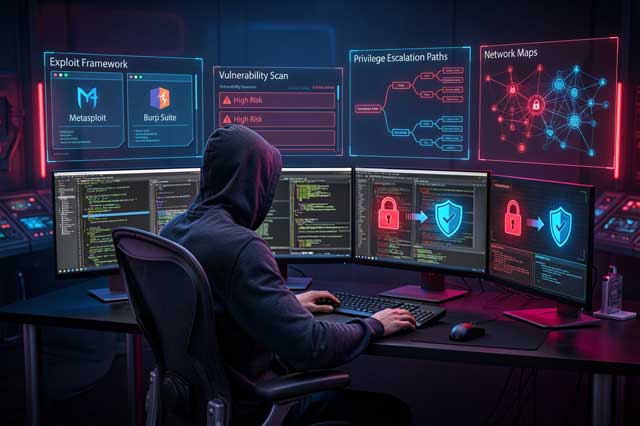
Advanced Penetration Testing and Exploitation
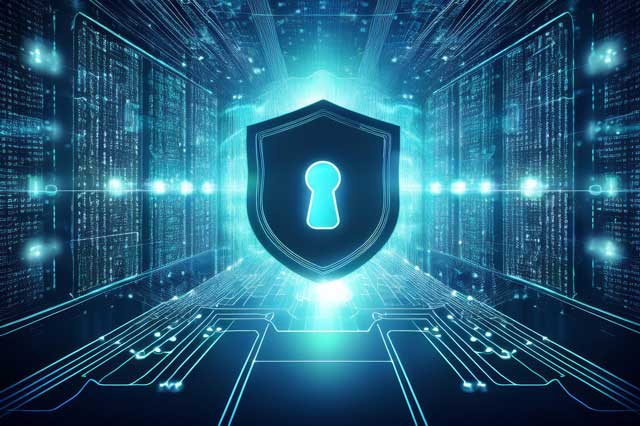
CISSP - Introduction to Information Security

Cloud Security Practitioner

Cyber Security
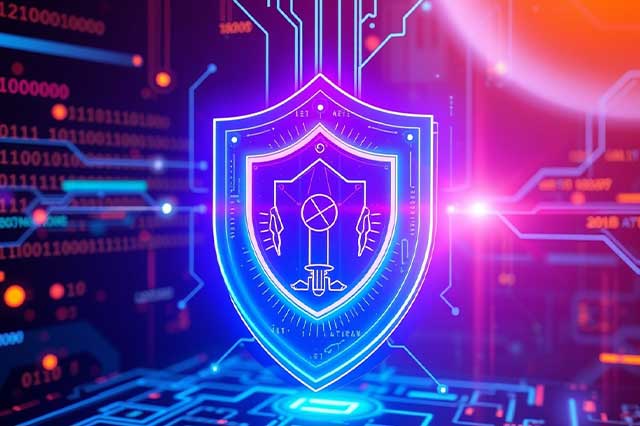
Cyber Security using AI

Digital Forensics and Incident Investigation
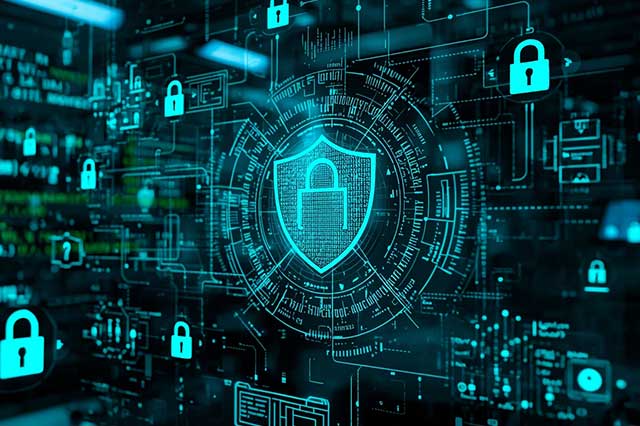
Ethical Hacking Essentials

Ethical Hacking For Beginners
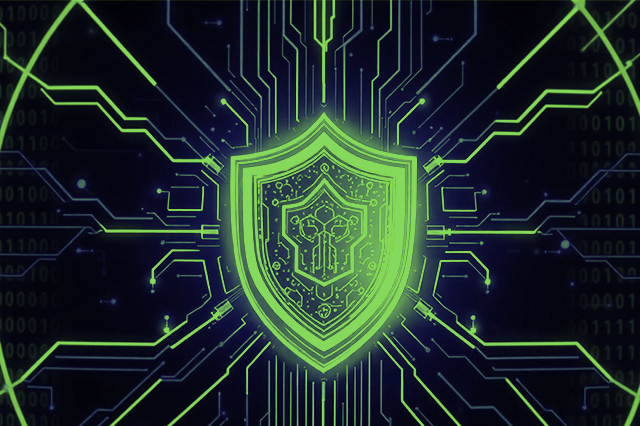
Gen AI in Cyber Security

Introduction to Cryptography for Beginners

Introduction to Cybercrime



